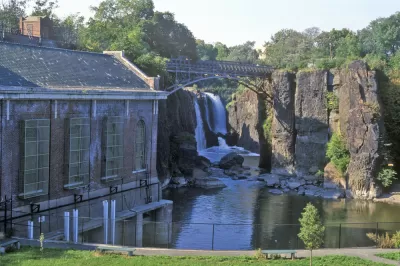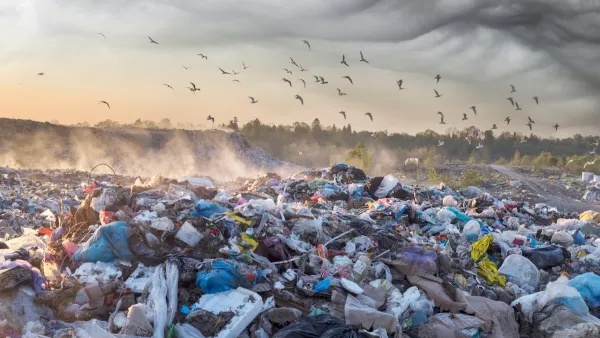Hydroelectric generation itself doesn’t produce greenhouse gases, but it does rely on the creation of reservoirs that release methane into the air.

A forthcoming study from Washington State University finds that reservoirs—including those created by hydroelectric dams—might produce 25 percent more greenhouse gas emissions than previously thought.
As CrossCut points out, "this could have implications for regions like the Northwest, which rely on hydroelectric power to meet its power demands."
The study looked at other man-made reservoirs as well, such as those used for drinking water and irrigation. Its findings may be surprising:
When all those man-made water bodies are added up, their combined emissions make up 1.5 percent of the world’s greenhouse gas pollution.
Put another way, if reservoirs were a country, they’d be the 8th largest emitter of greenhouse gasses like methane and carbon dioxide.
FULL STORY: WSU: Hydropower dams contribute to climate change

Montreal Mall to Become 6,000 Housing Units
Place Versailles will be transformed into a mixed-use complex over the next 25 years.

Planetizen Federal Action Tracker
A weekly monitor of how Trump’s orders and actions are impacting planners and planning in America.

DARTSpace Platform Streamlines Dallas TOD Application Process
The Dallas transit agency hopes a shorter permitting timeline will boost transit-oriented development around rail stations.

Interactive Map Reveals America's “Shade Deserts”
Launched by UCLA and American Forests to combat heat-related deaths, the tool maps the shade infrastructure for over 360 U.S. cities.

Bicycles and Books — In Sacramento, Libraries Now Offer Both
Adult library card holders can check out e-bikes and e-trikes for up to one week.

Colorado Landfills Emit as Much Pollution as 1M Cars
Landfills are the third-largest source of methane pollution in Colorado, after agriculture and fossil fuel extraction.
Urban Design for Planners 1: Software Tools
This six-course series explores essential urban design concepts using open source software and equips planners with the tools they need to participate fully in the urban design process.
Planning for Universal Design
Learn the tools for implementing Universal Design in planning regulations.
City of Mt Shasta
City of Camden Redevelopment Agency
City of Astoria
Transportation Research & Education Center (TREC) at Portland State University
City of Camden Redevelopment Agency
Municipality of Princeton (NJ)
Regional Transportation Commission of Southern Nevada





























